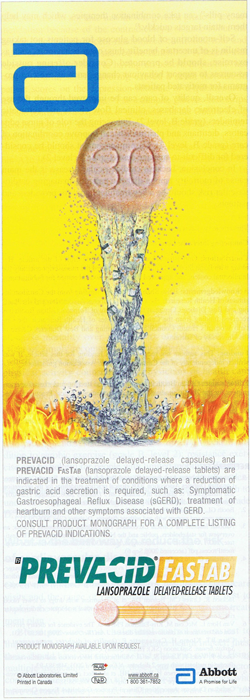
Research uncovers the importance of metaphors and patient influencers in healthcare marketing
Dr. Marjorie Delbaere (PhD) is an Associate Professor of Marketing and the Associate Dean, Research and Faculty Relations at the Edwards School of Business. Her research investigates communication and persuasion about complex and controversial topics, primarily in the pharmaceutical and healthcare marketing context. She was a recent recipient of the Social Sciences and Humanities Research Council of Canada (SSHRC) Insight grant for her research project entitled: “Patient Influencers: A Marketplace Approach to Investigating the Influence of Expert Patients.”
research investigates communication and persuasion about complex and controversial topics, primarily in the pharmaceutical and healthcare marketing context. She was a recent recipient of the Social Sciences and Humanities Research Council of Canada (SSHRC) Insight grant for her research project entitled: “Patient Influencers: A Marketplace Approach to Investigating the Influence of Expert Patients.”
Q: What is your big question?
A: My overarching research question asks: how can we effectively communicate and persuade others about complex and controversial topics?
Q: What are some of the key findings and outcomes of your research to date?
A: What I found in my research to date is that figures of speech or aspects of language, as well as images, are important when we are looking at how we persuade people. We found that, even with straight forward consumer goods like snack foods and laundry detergent, the use of personification in ads was effective and it was effective over and above the use of visual metaphors. When using metaphors or metaphorical language, it resonates with people. It is more persuasive with consumers. When we personify aspects of the product, that is even more persuasive with consumers and they respond more positively to that when we are communicating with them. We found that this is important when we are trying to persuade and communicate with people. What we also found was that it is important to look at the type or base domain of that metaphorical language. For instance, when we look at a lot of marketing frameworks that have base domains such as “marketing is warfare” or military based domains of knowledge, which are quite prevalent in marketing, it suggests that certain aspects of military based language are becoming more acceptable. However, that might not be the type of language that we would want to see from an ethical perspective being condoned in marketing. Language is important when you are trying to communicate and explain why it is important to do something.
Q: How would you describe the significance of this finding?
A: We know that military or warfare metaphors can compel action – they make that salient and yet they have perhaps some unintended consequences that go along with that. For example, some messages may convey that there is a winner and a loser or that companies should be seeing each other as rivals or as enemies. That is maybe not where we want to be looking towards in terms of achieving a sustainable and collaborative economy. Metaphors, figures of speech and the base domain that we use for those metaphors are all really important.

Q: What do these findings mean for healthcare marketing?
A: What we have seen in healthcare marketing is that, when you are communicating about certain diseases or chronic health conditions, how they are presented to consumers is important. Metaphors work in that they convey certain information strongly and clearly, but they can also mask other information. When you use a metaphor, you are making a comparison and they can be effective in explaining something that is unusual or that you do not know about. On the flip side, there is never going to be a perfect comparison and there will always be aspects that do not transfer, but metaphors mask those areas. I have found that pharmaceutical ads often describe or compare medication to that of a magical solution that will result in a magical transformation. It masks the reality that it is rarely just the drug that helps this transformation, and a lot of lifestyle changes must go along with it. We found evidence that consumers of healthcare and prescription drugs will activate persuasion knowledge, which is knowledge we all have of being persuaded often from a commercial perspective, when they are in the setting of a doctor’s office. It is not necessarily a bad thing, but we know people are activating this in non-conventional settings.
Q: How has this work informed your future research projects?
A: Where this work has led me to now is a focus on persuasive marketing in healthcare contexts and the role of patient influencers. What we have seen is that some pharmaceutical companies are employing influencers. I started out by looking at their growing social media strategy and we know they are active on social media. Their activity on social media is often about the disease stage or medical condition that their products treat. They do not promote the product brand in the same way you might expect from another product and are very careful because they are regulated. Yet pharma companies found this approach or in-between state that sort of falls under patient education and yet it is not entirely patient education because it has this promotional aspect to it. It is a very interesting grey area, and I am starting to look at why they are engaged in it. In their social media strategies, they are starting to work with influencers. Some people call them patient influencers. What we also found and are interested in studying the group of people who have medical conditions that have started their own groups online and their own support forums. With our recent SSHRC funded grant, we will explore the social networks of these different influential patients and we are going to map their social networks, conduct analysis at the network and ego levels, and look at different defining characteristics for these patients. Again, it is looking at how we influence people in healthcare domains and again we see borrowing from standard marketing the use of influencers being quite effective.
Q: How do the study findings impact marketers and the marketing field?
A: One area I would like to see this research have an impact on is getting marketers to question the use of military metaphors. There are reasons such as to compel action and the sense of urgency, but if we really want to change the way we think about business, and especially in Saskatchewan where co-operatives have been such a big part of our history and where we come from, we need to question the use of military metaphors. It is that idea of collaboration vs. competition. There is healthy competition, and it does not need to be this zero-sum game. Are there alternatives where we can still have successful business and deliver a lot of value without positioning the competition as the enemy?
Q: Do you have any research collaborations on this topic?
A: I have had a few key collaborations with honours and M.Sc. students. The work on metaphors as warfare was with Adam Slobodzian who was an M.Sc. student of mine. This was a great collaboration and experience where we turned his seminar paper into a publication. He wrote the paper and then the two of us edited it, revised it, and submitted it together to the Marketing Theory journal. He got to see, as a second-year master’s student, what this whole review process is like. He got exposure on how to write responses to reviewers and it became a better paper as a result.
I also worked with Ben Dunning, an M.Sc. Student with a background in psychology, on applying marketing frameworks in the healthcare setting. He looked at the theory of service dominant logic which comes from marketing that examines product value in terms of how it is co-created. It is the idea that marketers offer value, but the value is only realized when the consumer receives it. It is this idea of co-creation – it is not just one or the other. He looked at the role and with this lens of service dominant logic to understand this value creation in that clinical service domain. As a result, he was accepted to present this work at the Academy of Marketing Science. It demonstrates another way of how marketing frameworks can help us understand that exchange between patients and consumers.
I have also collaborated on another paper surrounding the use of metaphors in ag-biotech advertisements with Spencer Growth, an honours student who went on to do his MBA with us, and Marina Moreland who was an M.Sc. student. We recently had this work published in the Journal of Current Issues in Research and Advertising. What we found was the products that were higher in perceived risk were more likely to have a higher degree of metaphor presence. You would think when communicating with farmers, these are experts, and they know what they are doing, and it should be factual communication, but it was not. There were a lot of metaphors used and tended to be higher in this degree of metaphor presence in ads when it was for higher risk products like genetically modified seeds or higher risk pesticides. They did not downplay the risks, but instead highlighted the benefit and the risk of not using it.

Q: What is your most significant contribution to this area of research?
A: My research on the importance of personification in advertising has been my most significant contribution to the literature, which resulted in a joint publication with Barb Phillips and Edward McQuarrie. It received a lot of great cites and it is one that is almost always cited when people are talking about anthropomorphism in advertising and marketing.
Funding Acknowledgment: This research has been funded by the Social Sciences and Humanities Research Council (SSHRC).
To learn more about Marjorie Delbaere’s work, check out her profile page!
PUBLICATION HIGHLIGHTS
Dr. Delbaere's research has been published in refereed journals including Journal of Advertising, Social Science & Medicine, Health Marketing Quarterly, and Journal of Strategic Marketing.
Delbaere, Marjorie, Spencer Groth and Marina Moreland (2020), “Advertising Agricultural Biotechnology: Metaphors and Controversial Products,” Journal of Current Issues & Research in Advertising, 41(2), 191-205.
Delbaere, Marjorie and Slobodzian, Adam (2018), “Marketing’s metaphors have expired: An argument for a new dominant metaphor,” Marketing Theory, http://journals.sagepub.com/doi/10.1177/1470593118796697
Delbaere, Marjorie and Erin Willis (2015), “Direct-to-consumer advertising and the role of hope,” Journal of Medical Marketing, 15(1-2), 26-38.
Wei, Mei-Ling, and Marjorie Delbaere (2015), “Do consumers perceive their doctors as influenced by pharmaceutical marketing communications? A persuasion knowledge perspective,” International Journal of Pharmaceutical and Healthcare Marketing, 9(4), 330-348.
Delbaere, Marjorie, Edward F. McQuarrie and Barbara J. Phillips (2011), “In Advertising: Using a Visual Metaphor to Trigger Anthropomorphism,” Journal of Advertising, 40(1), 121-130.
